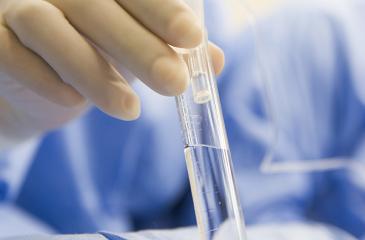CTSI recently debuted lower rates and a more flexible rate structure for University of Minnesota investigators using CTSI’s Biorepository & Laboratory Services (BLS) for collecting, processing, and distributing de-identified human specimens.
Service rates decreased by an average of 33 percent in BioNet, 10 percent in Histology & Research Laboratory, and 38 percent in Digital Imaging, in addition to rates for two new BLS service areas: Integrated Processing Network and Specimen & Data Repository
“BLS rates overall are now highly competitive with similar service providers,” said Cole Drifka, PhD, BLS Manager. “Researchers made it clear they wanted more options to better meet their needs and their project’s budget, while remaining compliant with tissue procurement research policies. Rates across the entire BLS program have been updated with the researcher’s best interest in mind,” Drifka said.
Flexible model for specimen procurement
Rather than a one-size-fits-all pricing model, BLS is also offering more flexible rate structures. For example in the BioNet prospective specimen procurement division, rates are now based on the level of staff involvement:
- Full service: For researchers requiring in-depth BioNet procurement services including patient identification, obtaining patient consent, specimen procurement, custom processing per study specifications, and basic medical record data abstraction.
- Partial service: For researchers needing all BioNet services except patient identification and obtaining informed consent. Patient identification and consent is performed by the researcher team.
- Pass-through service: For researchers that need to comply with current policy and require minimal BioNet support, there will be no charge. For example, BioNet staff receives the specimen from operating room personnel, ensures it is assigned a tracking number with Surgical Pathology, and distributes it to the researcher without any manipulation.
University and Fairview Research Administration policy mandates that research tissues obtained from operating rooms involve BioNet to assure clinical needs are satisfied, proper documentation, and patient confidentiality.
Appropriate service tiers and rates are mutually agreed upon at a researcher-BLS “kick-off” meeting, which is required before starting a new project.
Affected service areas
This change affects all current BLS service divisions, specifically:
Biological Materials Procurement Network (BioNet)
BioNet is the University of Minnesota’s only Institutional Review Board (IRB)-approved facility that prospectively procures human biospecimens for research purposes from patients who have consented to research.
Integrated Processing Network
This new division leverages existing infrastructure at the University to deliver biological material in a ready-to-use format to researchers. BLS staff coordinates downstream processing and testing services on behalf of the investigator.
Specimen & Data Repository
This new facility has a large collection of archival specimens for researchers performing retrospective studies. It also offers long-term custodial freezer storage services to researchers with valuable specimens and biological reagents.
Histology & Research Laboratory
The laboratory provides basic and advanced histology services, including embedding, sectioning, histochemical stains, immunohistochemical stains, and tissue microarray production.
Digital Imaging
The division provides whole-slide histological imaging suitable for preparing publication-quality figures, digital quantification, and collaborating with pathologists.
For questions about new rates and the types of services BLS offers, contact BLS at [email protected] or call 612-273-6652.
